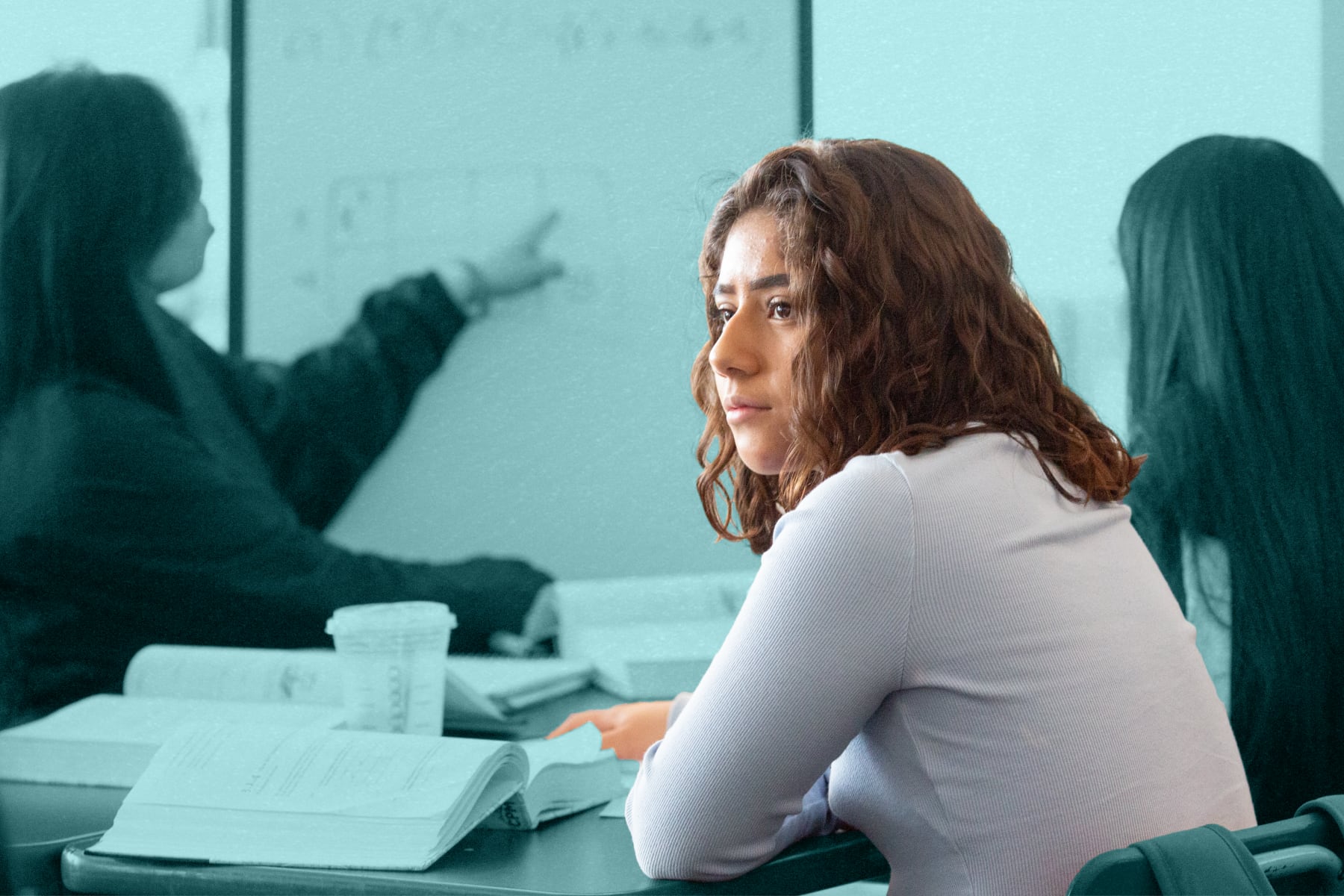There’s been a significant gap in learning caused by the pandemic and my high school math students are discouraged when our class-level standards are over their heads or out of reach.
I read your column on motivating students, but I think the issue is deeper. There is a mismatch between what the state standards require of students and what the average 2022-23 student looks like as a result of the pandemic.
Do you think there’s any appetite at the state or federal level to update standards and reflect these changes in our students? Do you have any advice for teachers like me whose classes are limited by out-of-date standards? — Needing New Standards
Dear Needing New Standards,
My short answer is NO WAY will anyone consider revising standards.
The overhaul of academic standards used across America was a massive undertaking from 2008 to 2010.
The Council of Chief State School Officers, National Governors Association, National Education Association, American Federation of Teachers, and a nonprofit education reform group called Achieve worked tirelessly for 18 months to create the Common Core standards.
My long answer is the COVID-19 pandemic upended education in America. Learning loss is an unfortunate byproduct of the disruption.
Students have been directly impacted by the loss of in-person instruction. As educators, it is imperative for us to keep expectations in place. In time, students can catch up from lost learning due to school disruptions. Gains are possible, as proven by elementary students.
Our teacher instincts tell us that we need to meet students where they are to alleviate the stress we teachers feel pushing them towards unrealistic expectations set by standards we don’t necessarily agree with.
The opposite is often true. Meeting students where they are creates a deficit model and leads to lowered expectations. To discourage this debilitating cycle of underachievement, educators need to expose students to grade-level content.
Time and rigorous instruction can help. Following a 2005 earthquake in Pakistan, researchers found that after a 14-week shutdown of schools most impacted, there was an average of 1.5 years of learning loss. Four years later, a significant number of students caught up to grade-level expectations.
Researchers attributed their academic turnaround to Pakistan’s government intervention and contributions from organizations like World Vision which sponsored catch-up classes.
But what about U.S. students?
To answer that question, we cannot ignore the intensive needs of the community. Pakistani children whose mothers were more educated did not fall behind. The missing component is examining how to support the communities that have been most affected.
While we may not have the funding to provide free catch-up classes to families, we can provide support using existing resources.
We have seen plans by individual countries to make significant investments in school programs.
- The UK offered a coronavirus catch-up premium for schools to create a national tutoring program, a tuition fund, and a language intervention fund.
- In France, the government created an educational continuity program to address the education needs of children and families.
- Here in the United States, three rounds of federal COVID relief funding provided a significant investment to help catch up on lost learning.
School districts have used COVID relief money to provide an acceleration, not remediation approach. We, the teachers, have the power to lead the way to support students who have returned to the classroom.
If funding is still available in your district, consider resources from the U.S. Department of Education. A post-pandemic benefit is student access to devices has significantly improved. Are there standards that can be practiced and reviewed at home?
My school is using an incentive program called Imagine Math to reward students who complete math lessons independently. When they pass the recommended number of lessons, students are eligible for gift cards, roller skating, and zoo field trips. Not all students buy into this idea, but for those who take advantage the benefits are great. We believe that it’s worth the try.
Needing New Standards, as an educational professional, every day with students is a day when we can look for opportunities to expand learning.
Currently, 10% of my students will graduate at semester end. With block scheduling, I only have about 11 classes left with them. I have to examine all the ways to expand on what they know while preparing them for their next level of education. If I had spent this semester remediating what the students did not learn, I expect I would feel guilty about not having covered 12th grade standards.
If possible, connect with previous grade-level teachers to define content-specific gaps.
Pre-pandemic, when our 12th-grade team wrote the curriculum, we met with ninth-11th grade teachers. Then, we thought specifically about what employers and higher education institutions were seeking and how we were aligning with ACT/SAT testing. We aligned all of the work with the calendar and standardized testing dates.
I find it difficult to eliminate any of what we worked so hard to create. My goal is to ensure that my students receive as much if not more direct instruction than pre-pandemic students.
Dr. Kem Smith is Chalkbeat’s first advice columnist. She is a full-time 12th-grade English teacher in St. Louis, Missouri. Submit your question to Dr. Kem via this submission form, and subscribe to How I Teach to receive her column in your inbox.
If you have a rebuttal or additional advice you’d like to share with Needing New Standards, please email afterthebell@chalkbeat.org.






